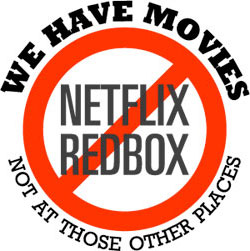Hollywood needs help scheduling their movies
Posted Friday, September 20, 2013 at 5:33 PM Central
Last updated Friday, September 20, 2013 at 5:34 PM Central
by John Couture

Welcome to Hollywood, where movies shift dates and frequently open mid-week or at midnight simply to get a leg up on their competition. It's ridiculous really and studios often play chicken over release dates positioning their tent pole movies in direct opposition of their competitors' films in hopes of getting them to blink.
Film scheduling isn't often talked about, but it's proving to be crucial in determining success of films whose budgets often skyrocket past $200 million. Studios often over-schedule during the lucrative Summer months leaving many films to come up short due to limited box office dollars to go around.
The Lone Ranger. The Hangover Part III. Battleship. John Carter.
These are just a handful of films in the past couple of years the failed to live up to lofty expectations at the box office. True, the films may have been terrible, but more likely the biggest reason they failed so miserably is terrible release positioning and market saturation.
Let's face it, there is only a finite number of dollars available on any given weekend at the box office. There's also box office fatigue that comes into play when there's a must-see movie released each weekend over a bunch of consecutive weekends. At some point the audience reaches their tipping point and pushes back to some degree.
I completely understand why studios do this. They only care about their films and their bottom line. And yes, someone over at Disney really believed that John Carter would win in a heads up battle with The Hunger Games. This short-sightedness not only hurts their film's performance, but it hits the industry as a whole.
But does it have to be this way? Just because it has traditionally been this way, doesn't mean that it has to continue to be this way. In fact, I argue that if things don't change, more movies will fail pushing us closer to the tipping point.
So, what can be done? Well, I've come up with a plan that I know most studios won't like, but it might just be the only way to save them from themselves. For a good analogy, think of professional sports and the scheduling of their games.
The leagues don't let individual teams make their schedules because they'd each all want high profile Saturday night games at home to help pad their coffers. So, the league handles scheduling and tries to be fair to all teams by giving them an equal number of high profile games at home on key nights.
That's what Hollywood needs. Whether it's the MPAA or a new organization, the studios need an unbiased third party to be in charge of scheduling films for release. They also need a new set of rules to insure that there isn't any market saturation and to better meet the demands of the audience.
According to an MPAA report, there were a total of 128 movies released in 2012 by MPAA member studios, aka the "Big 6" (Disney, Fox, Paramount, Universal, Warner Bros. & Sony), and a total of 677 films released theatrically. Obviously, the vast majority of these films were small releases from smaller studios, but think about that number for a minute.
That's an average of just over 13 movies released each weekend. That's crazy and way too many films. Don't get me wrong, there will always be smaller, art-house films and I'm not trying to curb their release. I'm talking about wide releases here in excess of 1,000 screens.
I think it's reasonable to have a limit of no more than three new wide releases each week. That would translate to 156 wide releases a year which I think will balance the schedule nicely and still let studios compete with the market.
Next, where is the fun in having Star Wars go head-to-head with Harry Potter? Everyone knows that both of these films will be huge, but you've forced us as audience members to choose between these films instead of being able to watch them both.
With this in mind, I would declare that there would only be one "ultra blockbuster" released each month on the third weekend of said month. While most of these "ultra blockbusters" would be obvious on face value, you could set some parameters, such as budgets over $200 million, opening on over 3,500 screens, what have you.
With only one "ultra blockbuster" per month, this ensures that audiences will be able to see all of the biggest films without having to worry about the strain to their pocketbook. And since there's only 12 designated "ultra blockbusters" each year, there's plenty of space to fill in the other three weeks each month.
I have other ideas that I think might help to alleviate glut and program films with more common sense such as designating certain months as "Awards Season" and/or "Family Friendly" where you can require a certain number of three releases each week be a particular type of film. The point is that once you have an unbiased entity scheduling releases, it gives you so much more flexibility and potential to tweak the schedule.
Right now, it's the Wild Wild West out there with films moving all of the time. Take 2015, for example, a pivotal year at the box office, just this week films such as Finding Dory and Pirates of the Caribbean: Dead Men Tell No Tales moved into 2016. Sure, there are plenty of reasons that films move, but at least with someone else overseeing the process it will help to alleviate the glut.
So, how would it work? I'm glad you asked. We took the aforementioned 2015 and hypothetically scheduled the "ultra blockbusters" for the year. We think the result is pretty fair and balanced, but we'd love to hear what you think. The current release date is in parentheses.
January 16, 2015 - Inside Out (June 19, 2014)
February 20, 2015 - Inferno (December 18, 2015)
March 20, 2015 - James Bond 24 (November 6, 2015)
April 17, 2015 - Star Wars: Episode VII (Est. November 2015)
May 15, 2015 - Avengers: Age of Ultron (May 1, 2015)
June 19, 2015 - Independence Day 2 (July 3, 2015)
July 17, 2015 - Man of Steel II: Superman vs. Batman (July 17, 2015)
August 21, 2015 - Terminator (July 1, 2015)
September 18, 2015 - Jurassic World (June 12, 2015)
October 16, 2015 - The Peanuts Movie (November 6, 2015)
November 20, 2015 - The Hunger Games: Mockingjay Part 2 (November 20, 2015)
December 18, 2015 - The Good Dinosaur (November 25, 2015)





